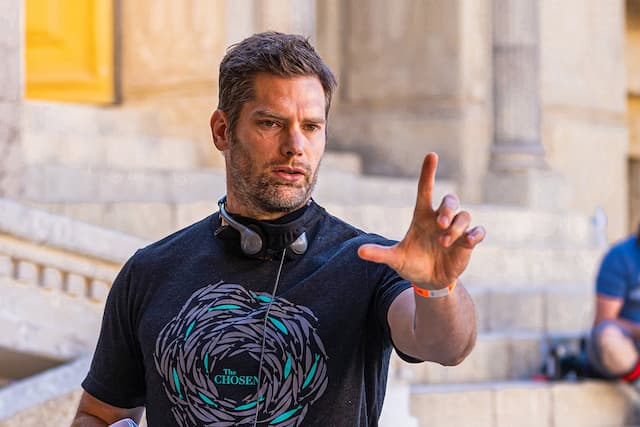Worship—I'm Just Not Feeling It
The role emotions should have in the believer’s life has often been subjected to hidden assumptions and their predictable conclusions. For example, those in a high church tradition where ritual is prominent tend to downplay the role emotions should have, as do those in a more scholarly tradition where theology is scrutinized and note-taking is constant. However, those in a more revivalist tradition, or Charismatic tradition, seem to elevate the role emotions should have.
For other people, the deciding factor for promoting or demoting emotions relates more to personal temperament than it does to church tradition. If a person tends to be more sanguine and outgoing, then emotions will be warmly welcomed. But if a person is more reserved by nature, emotions may be more buttoned down and restrained.
Sometimes, an appeal is made to gender, wherein women are said to be more emotional than men; or to geography, wherein those of African or South American descent are said to be more emotional than those of British or Scandinavian descent.
These generalizations are overly broad and not particularly useful. At issue is this: What does Scripture say? Is expressing one's emotions in worship to be decided by tradition, temperament, gender, ethnicity, or some formula designed to achieve balance?
Strong surges of feelings—what some call enthusiasm—is not alien to our faith. G.D. Watson exclaimed, “What a vast ocean of heart life and pathos and feelings pervade the whole Bible! It is not a stoical, human, philosophical book; it throbs with deep feeling from beginning to end.”1
In fact, the very word “enthusiasm” comes from two words, one means “in” and the other means “God.” True enthusiasm, therefore, comes from being in God. “Without enthusiasm,” Joseph Parker cried, “what is the church? It is Vesuvius without fire, it is Niagara without water, it is the firmament without the sun.”7 We can string more metaphors here, but you get the idea: There is an enthusiasm that finds its source in God.
Love, joy, peace, and other parts of the Holy Spirit’s fruit would become unappealing, if not unintelligible, if emotions were stripped away. The difference would be as obvious as that which exists between artificial, plastic fruit bought in a craft store versus natural, juicy fruit bought in a grocery store.
Whenever emotions become the goal in worship, a drug mentality has taken over. To measure worship by the degree emotions were stirred is a false assessment, by which the Spirit of God is reduced to a stimulant, and “getting high” becomes the result of an inferior intoxicant rather than a godly inspiration.
Yet it is clear, particularly in the Psalms, that exuberance in worship is expected. So, if our worship is more stoic than soulful, should we be concerned? The short answer is, yes.
Vance Havner spoke of those Christians who act like a wild Comanche on Saturday night and a wooden Indian on Sunday. One wonders how a person can be so expressive at the ballgame and so non-expressive at church. The answer isn’t exactly a mystery. We can easily discover it by considering what sometimes occurs at a sports event.
Let’s suppose you attended your alma mater high school’s football game a couple of weeks ago—and, boy, was it exciting! The outcome of the game was very much in doubt until the last minute. With only sixty seconds to play and the opponent sustaining a long, time-consuming drive, your team did what it had to do—forced a fumble. And when that happened, you leaped to your feet, shot your hands into the air, and let loose a loud, excited cheer! But then, settling back into your seat, you watched your team line up, hoping they would now put together the winning drive.
It wasn’t going to be easy, you knew, because your team plays a ground-control running game, not well-suited to quick-come-from-behind victories. Thus, you and everybody in the stadium recognized that they were going to have to abandon the run in favor of the pass. Consequently, the opposing team lined up in a “prevent defense,” willing to give up short yardage, but not the “long bomb.”
On the first play from scrimmage, your quarterback retreated to a shotgun formation and sent four receivers out. The opponent’s coverage was too good, though, so he threw the ball out of bounds. On the next play, trying to draw the defense in a little bit, the quarterback hit the tight end crossing over the middle, whereupon he was immediately tackled by the same linebacker who has been giving your team trouble all night. The gain went for six yards.
With tension mounting, your team returned to the line of scrimmage, hoping that with a long count they would be able to draw the other team off sides and maybe get a first down that way. It didn’t work. So, with seconds left on the clock, the ball was then snapped and, on a timing play, was thrown to your wide receiver.
From the beginning of the play, the ball looked like it was way overthrown. But with a sudden burst of speed, your wide receiver broke away from the coverage and managed to catch the ball in stride—before then racing all the way to the end zone, untouched!
Well, you and everybody with you were going nuts! You started jumping up and down, screaming up a storm and hugging everyone in sight. Your team did it! You just won! You are on your way to the championship!
Let’s suppose, though, that the following week your team was to play an even bigger game, this one determining the conference championship. As luck would have it, however, two days before the big game, your boss told you to fly to the coast because there was a big account in jeopardy. So you go, you miss the big game, and you don’t get back until the day after the game.
Arriving at the airport from your out-of-state assignment, you ask the friend picking you up who won the game. Your friend tells you your team pulled it out again in the fourth quarter. At which point, you grin, give a thumbs-up, and proceed to pick up your luggage.
So why wasn’t there any jumping, screaming, and hugging? This was the bigger game, after all! Well, maybe it was, but the reason for the more restrained response is you weren’t there. What you are hearing now is all secondhand.
And isn’t this the same reason we are reserved in church? If we’re living on secondhand hearsay—devoid of a present tense, good-news story in our walk with God—our enthusiasm in worship will deflate; and may do so to the point it no longer exists. So, given this context, trying to rally enthusiasm won’t do any good. Every attempt to coerce exuberance and rev up the emotions will fall as flat as we are!
Yes, we may believe what we hear in church and be glad that it’s true, but the real reason we aren’t any more enthused than we are isn’t because of our temperament (we already proved that theory wrong at the ballgame). The real reason for our lack of passion is that we are not now—nor have we been for a long time—in the presence of God.
We may have been in church, but that’s not the same thing.
Notes:
1. G.D. Watson, Spiritual Feasts, (Salem, Ohio, Schmul Publishing Company, 1991), p.9.
2. James. S. Stewart, The Wind of the Spirit, (Grand Rapids, MI, Baker Book House, 1984), p.190.











